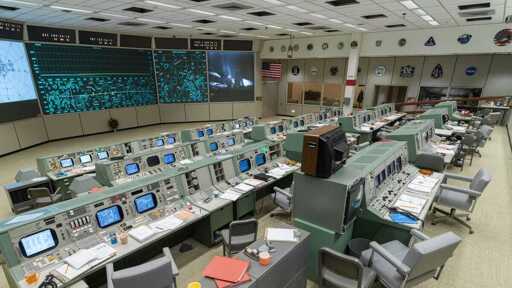DigitalDilemma
- 6 Posts
- 469 Comments

 4·6 days ago
4·6 days agoI used wview for years, and published a couple of weather stations publically. Sadly that looks to be abandoned now.
Nowadays I just run Home Assistant and combine an anenometer, a rain tip gauge and about a million different temperature sensors into that, mostly with 8266’s running Esphome to collect and forward that data. It’s a fun and cheap little hobby if you like collecting data. The gauge and anenometer were off aliexpress for about £5 each, the esps about the same, and temp sensors less than a quid each. All software foss of course, and uses almost no resources so can run on any linux server.
 5·10 days ago
5·10 days agoThis is true. I get insane write speeds when storing data in /dev/null

 6·11 days ago
6·11 days agoHero of War also a strong fave of mine. Bleak as fuck. No Bravery by James Blunt is on similar lines.

 2·11 days ago
2·11 days ago“Boys will be boys” by Stella Donnelly. Best listened to blind, imo, so won’t give context.
Hero of War by Rise Against. An American soldier’s view of war.
Raoui by Souad Moussi (I can’t understand arabic so she might be singing a shopping list, but the pain in her voice gives me shivers every time)
No Bravery by James Blunt. A British soldier’s view of war.
I have a long playlist of stuff like this called “Managed Melancholy” - it’s part of my mental health self care to immerse myself in sad sometimes and really feel. (I’m fine btw, and this is part of giving me an outlet)

 61·15 days ago
61·15 days agoSome of us gamers have been training for that our whole lives.

 3·17 days ago
3·17 days agoWhy add age checks?
I’ve read this from several sources now and not found anywhere that explains why they’re doing this. Are they being threatened with legal action?

 6·18 days ago
6·18 days agoAgree. Although Mariadb has drifted significantly (and with very good reason) in terms code, features and SQL - I still mentally parse “Mysql” as “MariaDb”. It’s one of the best forks I’ve ever encountered in all my time using foss. I currently maintain around 80 MariaDb servers and have remarkably few problems.
Much as I like to see variety in software, I do kind of wish more recognition of MariaDb was given, and more support.

 17·19 days ago
17·19 days agoImagine having only two parties. Wild.

 8·26 days ago
8·26 days ago/Colour/ Photocopiers cost about the same as a new car back then, so whilst they existed, they weren’t exactly within access to schoolkids.
Google Tasks isn’t listed here.
This was something I relied upon heavily. When I de-googled, I didn’t want to just move it to another cloud platform, and as a selfhoster I tried quite a few self hosted solutions. Some were very good, but also quite complicated and filled with features I didn’t want.
So I wrote my own - Taskpony - and made it FOSS. It evolved into something that’s not a Google tasks copy, but suits my own needs better. Simple, easy, useful. I’ve really enjoyed the process of writing and sharing this.

 41·1 month ago
41·1 month agoNot a Lemmy resource, but if you do want reasonably unbiased news that gets suppressed - especially in certain countries, Wikipedia does cover some of it - https://en.wikipedia.org/wiki/Portal:Current_events
1490s
Yeah. Why didn’t people just stay put?
I’m older than most on here and seen more decades, and yes, I agree totally.
We’re lucky enough to have lived through a long period of relative global peace, but that seems to be drawing to an end. Corruption, fascism, stupidity, control, fear and lack of freedom are all far more now than at any time since the 1940s.

 20·1 month ago
20·1 month agoEven if you do know code, nobody reads all the source code when trying something out.
We still rely largely on trust, and herd protection. Lots of stars on github? Been around for a while? Keeps showing up in “Top lists” and on those posts on social media where people list the foss software they use? Issues get solved reasonably quickly and there’s no ancient and ignored posts on there? It hasn’t changed hands recently to somebody with a new account and no history? It’s probably a good project.
It is still a risk, but a managed one.

 181·1 month ago
181·1 month agoOr wear a star on your jacket for everyone to see.
I’ve been playing with computers and writing code since 1981, so have seen a few things change, and the past couple of years have been alarming from a world new stage, but that’s not so much about tech as global unrest.
It started with the cookie banners… “We value your privacy” == “Of course, it’s worth money to us” The internet has shifted a lot over the past couple of years particularly, and it was inevitable. Just as inevitable is the loss of the small internet (I speak as someone who runs several small websites that get scraped and stolen from constantly), and the attempts of governments to control it. That was all going to happen, and just as inevitable is the impossibility of complete control - it’ll just make life harder for the honest person.
We’ve seen some shitty changes to software too through global business. With hindsight, that was inevitable too - it took a long time for someone to realise just how locked in the likes of vmware’s customers were. How cloud and then AI additions were reasons to charge more for features we don’t like. There’s a lot of fear about global instability for obvious reasons, and that’s hard to shake.
But also… People haven’t changed. For every big name enshittification, there’s people sprouting two more things without such controls. Where we are now - founded largely because of shenanighans at Reddit. You mention Linux - again, most of it free and accessible and those are baked into it. (We’ll skip over Redhat here, I think, perhaps the exception that proves the rule). There’s a lot of free software projects that are born out of love for the free and open community. A place where respect is more common than rudeness.
So I’m certain there’s a balance. Yes, crappy things. But also good things. I’m constantly amazed at new inventions and how tech is genuinely improving life for many people. I grew up in England in the 70s and the quality of life today is better despite what we might think, but it’s also far more complicated, and makes us feel helpless and small. Back then, our world was small, we knew people. A disaster on the other side of the world took days to arrive on our newspapers, and we weren’t made to feel like we should do something about it.
Perception may be playing a big part in your view here, and you sound both burnt out and depressed. Not uncommon with the bombardment of badness in the news that we can do nothing about. Understanding that, and stepping outside of the doom cycle, definitely helps.
Ultimately, you’ve got to do what’s right for you. If tech is a hobby to you, then it’s the same as any other hobby. When it stops being fun, it’s time to find something else that you enjoy instead of, or as well as. Hope you find a better balance.

 30·2 months ago
30·2 months agoHolding in the farts.

 1·2 months ago
1·2 months agoIt doesn’t need the Dockerfile to run.






Well, it literally is exactly that - not one mention of this in the mainstream media.
It’s not the case that it was drowned out, it was never said at all.